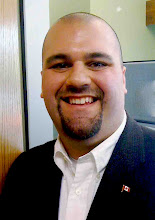I am a firm believer that Social Softwares should be used in Libraries, however, in order to use them, the libraries (librarians/techs/or who ever else is monitoring/setting-up, etc) has to be aware of its community and how the tools can be and should be set-up for their community. There seemed to be so many examples of "botched" social software being used in libraries. I believe that a lot of libraries are disconnected with their communities (however, some have really good social software tools, and do a great job!). Having a tool, and not being able to use it, is a very big handicap. It's the same concept as a construction worker who doesn't know how to hit a nail with a hammer, if the librarian doesn't know how to appeal to it's users, it simply won't work. To make it work I believe that the library has to look at certain things, and find what suits them best. By looking I mean:
- Take the initiative!
- Have focus groups, find out what the community wants, what is appealing to them!
- Keep on top of the literature, stay ahead of the game, stay informed.
- Keep reviewing and updating what you do. In today's society, things change in the blink of an eye, so be prepared to change, and re-adapt!
- If at first you don't succeed, try and try again.
my 2cents!


